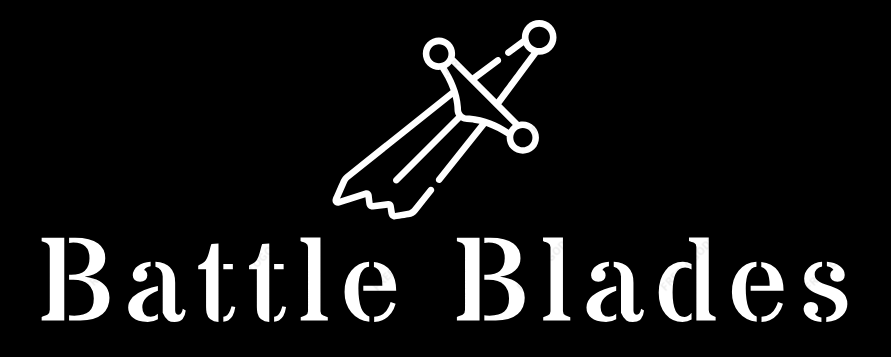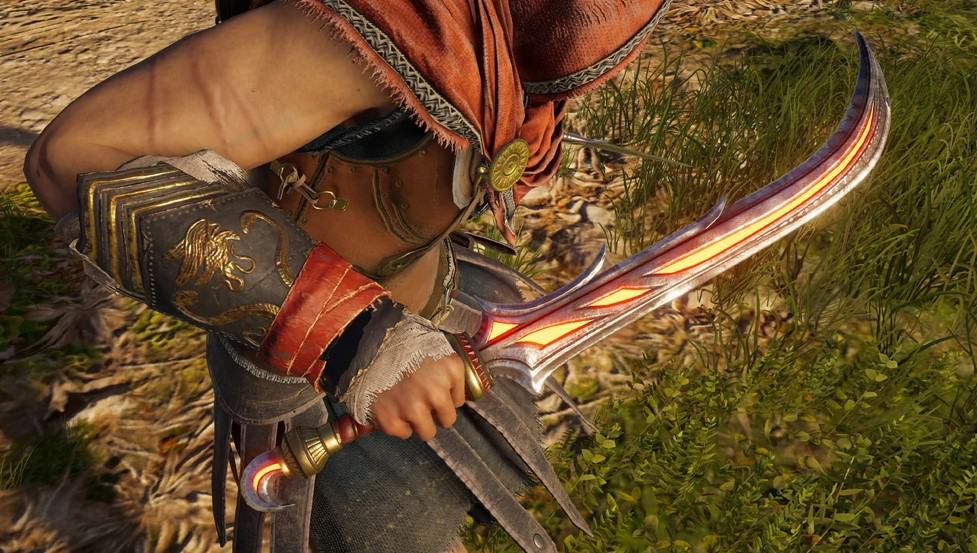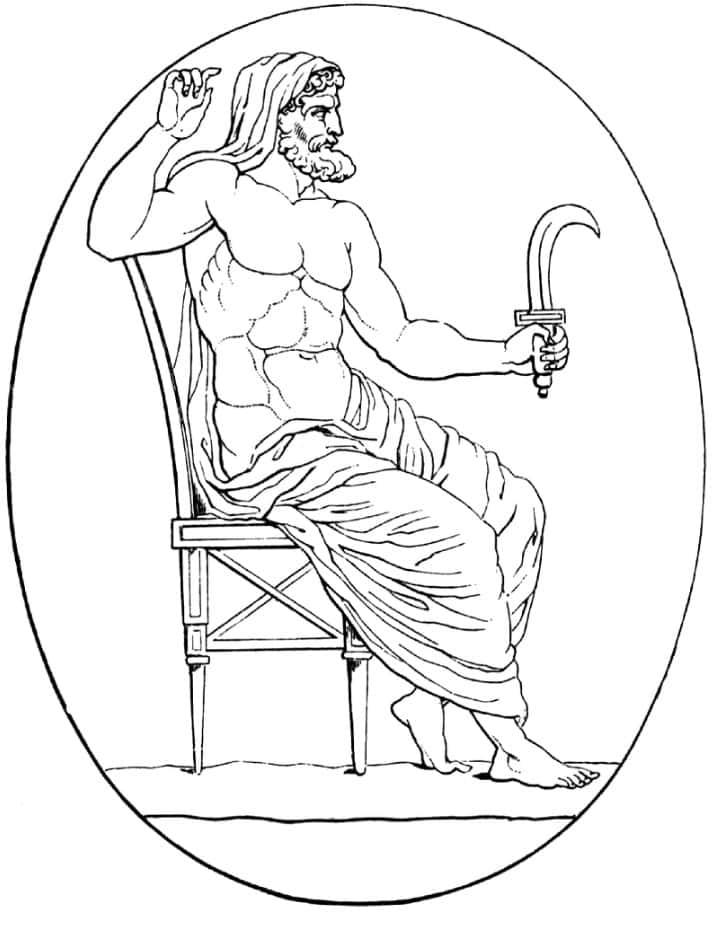The Dagger of Kronus: Mythical Weaponry from Greek Mythology
In the vast tapestry of Greek mythology, where gods and heroes intermingle with mortal lives, tales of wondrous artifacts often take center stage. Among these mystical objects, the Dagger of Kronus stands as a testament to divine craftsmanship and legendary power.
This blade, woven into the fabric of ancient Greek lore, holds secrets that have captured the imagination of storytellers and history enthusiasts alike. Let us journey back to an era of gods and Titans, where the Dagger of Kronus played a role both in the destinies of mortals and the grand schemes of the divine.
What is the Dagger of Kronus?
The Dagger of Kronus is a weapon that draws its inspiration from the mythological tale of Kronos, the Titan who castrated and overthrew his father Uranus. Crafted with both historical significance and arcane power, this dagger found its way into the hands of the enigmatic Sage of the Eyes of Kosmos, Nyx the Shadow, during the tumultuous era of the Peloponnesian War in the 5th century BCE.
As a coveted artifact within the secretive cult, the Dagger of Kronus was wielded by Nyx, a prominent member of the Eyes of Kosmos branch of the Cult of Kosmos. The Eyes of Kosmos were astute gatherers of information, a network of bankers, slave masters, politicians, and discreet socialites that operated as spies and infiltrators throughout Greek society. Their goal was to manipulate information to control the ongoing war, believing that knowledge was the ultimate tool of domination.
During the Peloponnesian War, Kassandra, a skilled Spartan mercenary, tracked down and eliminated each member of the Eyes of Kosmos, crippling their operation. Her quest for justice culminated in the demise of Nyx, the Sage responsible for orchestrating the Eyes of Kosmos. This brought an end to the Cult’s intricate web of information-gathering and manipulation, ultimately reshaping the course of the war and Greek history.
What’s the story of Cronus/Kronus?
In the intricate realm of Ancient Greek mythology, the narrative of Cronus, also known as Cronos or Kronos, emerges as a pivotal tale within the pantheon of divine beings and legendary events. Among the Titans, the first generation of powerful deities born from the primordial union of Gaia (Mother Earth) and Uranus (Father Sky), Cronus held a unique role as both the youngest and their leader.
The saga of Cronus is one of tumultuous power struggles, celestial destinies, and cosmic upheavals. Rising to prominence in the primeval days of the universe, Cronus orchestrated a rebellion against his father, Uranus, and in doing so, usurped the throne. Thus, he entered an era known as the Golden Age, a mythological epoch characterized by unparalleled prosperity and virtuous living.
However, the narrative unfolds to reveal a twist of fate as Cronus himself faces a fate similar to that of his father. Foreseeing his own downfall at the hands of his offspring, he seeks to avert this destiny by consuming his own children, which include deities like Demeter, Hestia, Hera, Hades, and Poseidon, who would one day challenge his rule.
The emergence of Zeus, the sixth child born to Cronus and Rhea, marks a turning point in this epic tale. Rhea, desperate to protect her newborn, orchestrates a cunning plan to deceive Cronus. She presents him with a stone wrapped in swaddling clothes, which he ingests, believing it to be Zeus. This act not only showcases Rhea’s cunning but also has profound cosmic consequences, giving birth to the Milky Way as a divine testament.
Hidden away on the island of Crete, Zeus grows under the protection of various guardians, escaping the watchful eye of his father. Upon reaching maturity, Zeus confronts Cronus, and a titanic conflict ensues – the Titanomachy. With the aid of allies such as the Hecatoncheires and Cyclopes, Zeus triumphs over Cronus and the other Titans, thus securing his rule over the cosmos.
While some accounts depict Cronus being confined to Tartarus along with the other Titans, other traditions suggest a more complex destiny. Pindar’s verses suggest that Cronus and the Titans were eventually released, and he ruled the blessed Isles of the Blessed alongside his fellow Titans.
The narrative of Cronus embodies themes of cosmic cycles, generational conflict, and the inevitability of change. His tale reverberates through Greek mythology, a symbol of the passage of time and the intricate interplay between deities and mortals. Cronus’ legacy endures as a reminder that even the most powerful beings must ultimately yield to the flow of destiny, making way for new eras and new rulers to shape the mythic landscape.
Conclusion
The Dagger of Kronus embodies the eternal struggle between gods and Titans, the forging of destiny, and the undying spirit of heroism. As we delve into the tales surrounding this mythical weapon, we find ourselves connecting with the ancient minds that wove these stories – minds that sought to understand the forces of nature, the mysteries of the cosmos, and the essence of human nature itself.
While the Dagger of Kronus remains a symbol of power and intrigue, it is also a reminder of the timeless themes that continue to resonate through the ages. May it inspire us to explore the depths of mythology and find the threads that weave our own narratives into the rich tapestry of human history.


